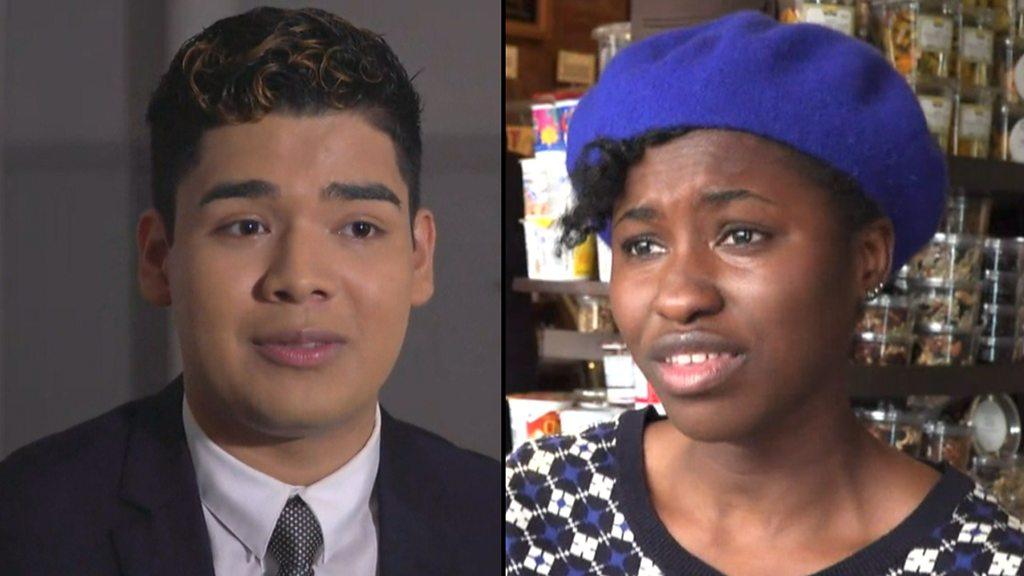US to scrap Haitian immigrants' protected status
- Published
'Crying every day': Haitians could be sent home under Trump
The US is to terminate a programme that gives more than 50,000 immigrants from Haiti protection against deportation.
Immigrants from the Caribbean nation received protected status in 2010 after a devastating earthquake.
But the Trump administration says conditions there have now improved and its nationals can return safely.
It says their protected status will end in July 2019, giving Haitians 18 months to return or otherwise legalise their immigration status in the US.
"Those extraordinary but temporary conditions caused by the 2010 earthquake no longer exist," a statement from the US Department of Homeland Security said.
"Significant steps have been taken to improve the stability and quality of life for Haitian citizens, and Haiti is able to safely receive traditional levels of returned citizens," the statement added.
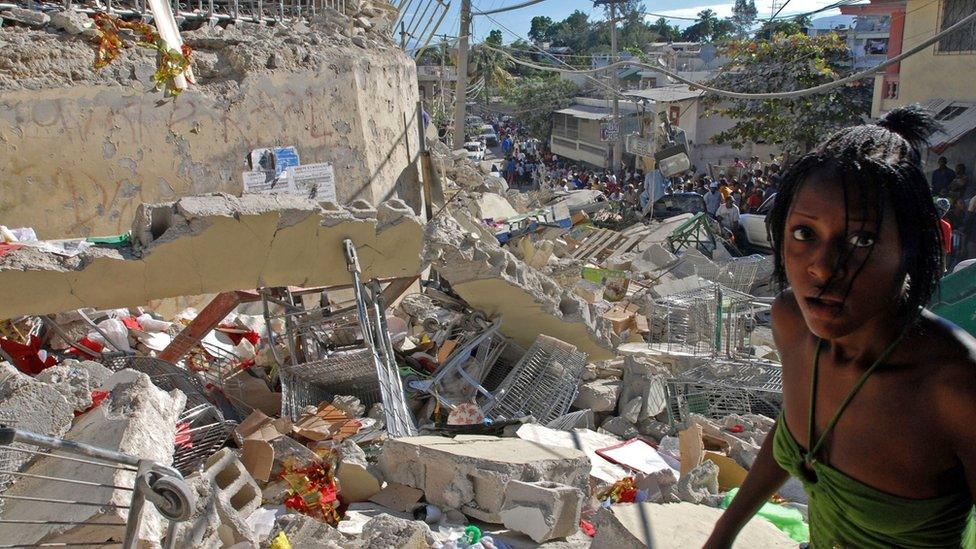
The Haiti earthquake left 220,000 dead and 1.5 million people displaced
But campaigners say the Trump administration has unfairly singled out small numbers of the most vulnerable people as part of its tougher stance on immigration.
In a statement, House Democrat Leader Nancy Pelosi said: "Deporting tens of thousands of men and women back into the nation will only deepen the suffering in Haiti."
"I completely disagree with the characterization that the situation in Haiti has improved", she added.
The Temporary Protected Status (TPS) programme grants temporary visas to more than 435,000 people from 10 countries ravaged by natural disasters or war.
The move to terminate TPS for Haitians comes after a similar step was taken against 5,000 Nicaraguans. Protection for 86,000 Hondurans in the US has been extended.
A decision on El Salvador's status, which was given TPS after its 2001 earthquake, is due in January.
The US decision to end TPS could have repercussions in Canada, where thousands of Haitians flocked over the summer due to fears of deportation.
Montreal was forced to set up temporary shelters to house the asylum seekers who crossed illegally into the province of Quebec after the Trump Administration signalled last May it was considering cancelling TPS for Haitians.
At its August peak, over 5,500 asylum seekers crossed into the province.
Canadian members of Parliament continue to travel to the US on outreach missions to cultural communities in an effort to counteract misinformation they believe is bringing them to Canada's doorstep, including that asylum is easy to obtain.
Canada completely lifted its own protected status for Haitians over a year ago.
In 2016, about 50% of all asylum claims made by Haitian nationals were rejected, and they were subsequently deported.
- Published19 November 2017
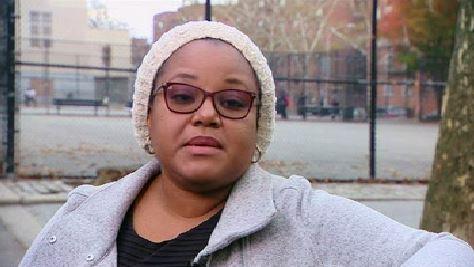
- Published7 November 2017
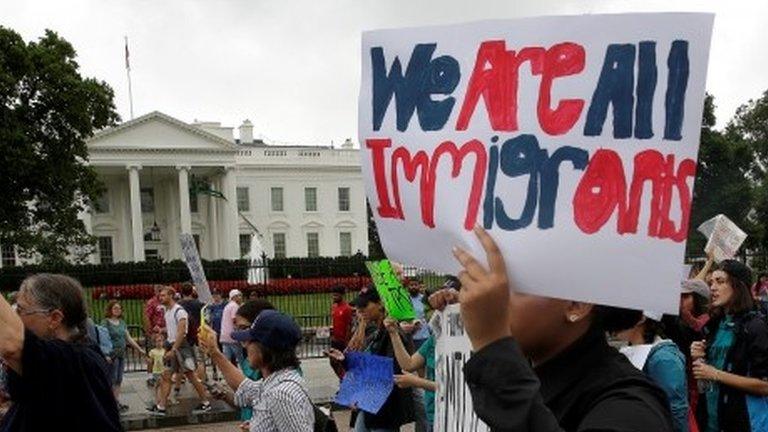
- Published22 May 2017
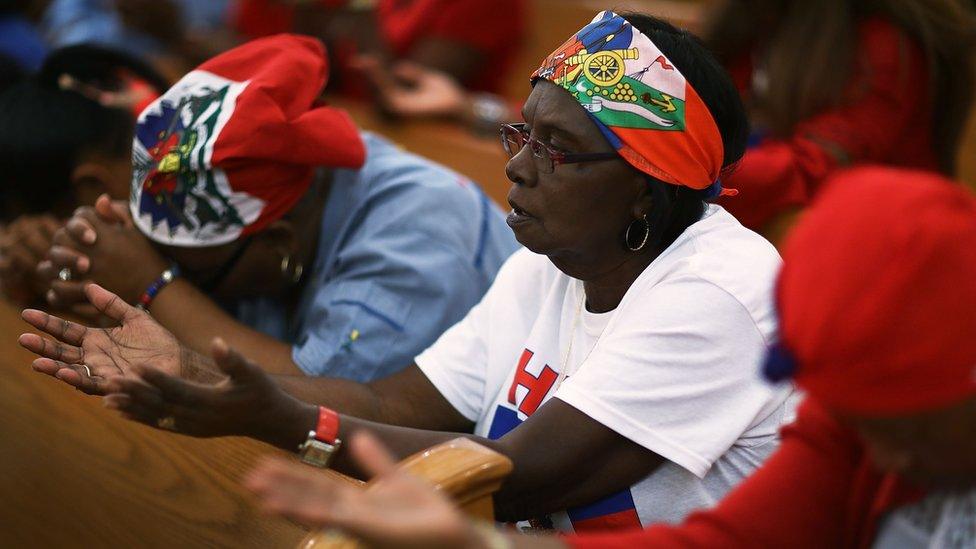
- Published5 September 2017
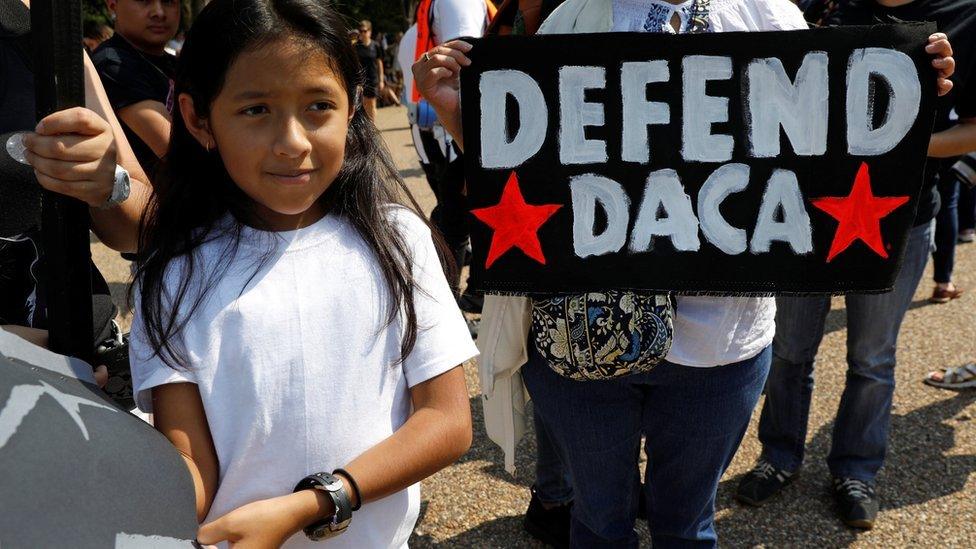
- Published25 January 2017
